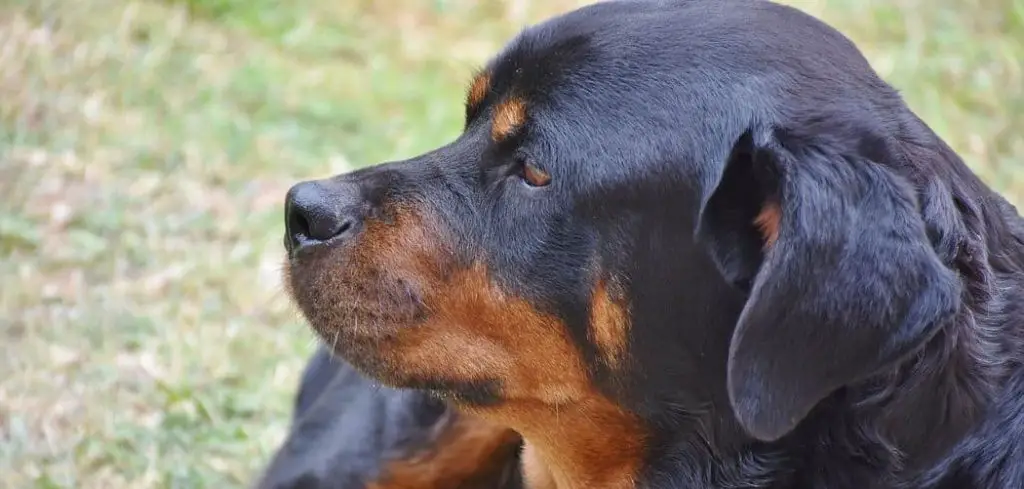Seeing your dog throwing up bile while also panting heavily can be very alarming. These symptoms may point to underlying digestive problems or even systemic conditions that require attention.
We outline the common reasons why a dog may be throwing up bile and panting, what you can do at home, and when to seek veterinary help.
Dog Throwing Up Bile and Panting — Why It Happens
When a dog is throwing up bile and also panting, it often means the digestive system is irritated and the dog is experiencing discomfort, stress, or pain. Vomiting bile typically occurs when the stomach is empty or inflamed, while panting can indicate nausea, abdominal pain, overheating, or more serious systemic problems.
Combined, these symptoms suggest that your dog’s body is struggling to regulate both digestion and comfort, which may range from mild to very serious depending on the underlying cause.

Dog Throwing Up Bile and Panting: Common Causes
Gastroenteritis
Gastroenteritis is inflammation of the stomach and intestines, often triggered by infections, dietary indiscretion, or toxins.
Dogs may vomit bile when their stomach is irritated or empty, and panting may follow as a response to abdominal discomfort or nausea.
Some dogs also develop diarrhea, lethargy, or loss of appetite. While mild gastroenteritis can resolve with supportive care, severe cases can progress quickly and require veterinary treatment.
Read more: Dog Throwing Up Bile and Blood In Stool (Causes and when to worry)
Pancreatitis
Pancreatitis is inflammation of the pancreas, and it’s a frequent cause of both bile vomiting and panting.
The pancreas becomes inflamed, leading to abdominal pain that makes a dog restless, uncomfortable, and prone to panting.
Vomiting bile is also common, especially after eating fatty meals. Dogs with pancreatitis often refuse food, appear hunched, or cry out if touched around the belly.
This condition can become dangerous without treatment and usually needs veterinary care.
Heatstroke
If a dog has been exposed to hot weather or overexertion, heatstroke may develop. Panting is the body’s main way to release heat, and vomiting bile may occur as the internal stress builds.
Dogs experiencing heatstroke may drool excessively, stagger, collapse, or show bright red gums.
This is a life-threatening emergency, and immediate cooling measures along with veterinary attention are essential.
Toxin Exposure
Ingesting toxic substances, whether household chemicals, poisonous plants, or medications, can lead to vomiting bile as the body tries to eliminate the toxin.
Panting often appears alongside as the dog becomes distressed, weak, or in pain. Some toxins also cause drooling, tremors, or seizures.
This situation is urgent, and any suspicion of poisoning requires immediate veterinary intervention.
Gastric Ulcers
Ulcers in the stomach lining can cause vomiting bile, sometimes tinged with blood, and lead to panting due to nausea or abdominal pain.
These ulcers may develop from prolonged use of certain medications, stress, or underlying illness.
Dogs with ulcers often eat less, lose weight, or lick their lips frequently. Left untreated, ulcers can worsen and cause internal bleeding.
Liver or Kidney Disease
Chronic organ problems such as liver disease or kidney failure can manifest with both bile vomiting and panting.
These conditions interfere with the body’s ability to process waste, leading to nausea, vomiting, and discomfort.
Panting may be related to pain, toxin buildup in the blood, or anemia. These conditions are serious and require prompt veterinary diagnosis and management.
What to Do If Your Dog Is Throwing Up Bile and Panting
If your dog has vomited bile once and is panting briefly, monitor them closely while offering water in small amounts.
Sometimes mild stomach irritation or stress can pass on its own. You can withhold food for 6–8 hours and then offer a bland diet like boiled chicken and rice in small, frequent meals.
If panting continues or the vomiting recurs, avoid giving over-the-counter medications unless specifically directed by your veterinarian.
Instead, keep your dog in a calm, cool environment, provide hydration, and watch for additional symptoms such as diarrhea, weakness, or abdominal swelling.
Because panting indicates discomfort or stress, it’s best to err on the side of caution and plan for a veterinary visit.
When to Call or Visit Your Vet
You should contact your veterinarian right away if your dog continues to vomit bile repeatedly or pant excessively, especially if the symptoms come on suddenly or worsen quickly.
Dogs that are weak, refusing food, lethargic, or showing signs of abdominal pain should not wait for home care to resolve the issue. Puppies, seniors, and dogs with known health conditions are especially at risk and need urgent care.
If you notice additional red flags such as blood in vomit, collapse, pale gums, or signs of heatstroke, treat it as an emergency and seek veterinary help immediately.
Read more: Dog Throwing Up Bile and Drooling (Should you be concerned?)
Key Takeaway
When a dog is throwing up bile and panting, it usually signals that something more serious is going on than a simple upset stomach. Causes can include gastroenteritis, pancreatitis, heatstroke, toxin exposure, or even chronic organ disease.
While mild, short-lived cases may improve with rest and hydration, most require veterinary attention to ensure your dog does not develop complications.
Always monitor closely, keep your dog comfortable, and seek timely veterinary care if symptoms persist or worsen.
